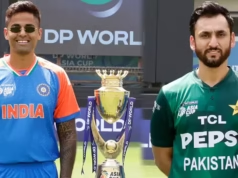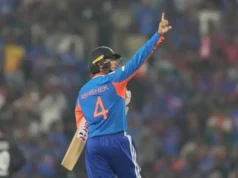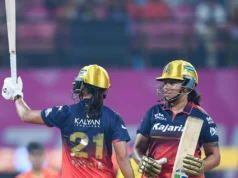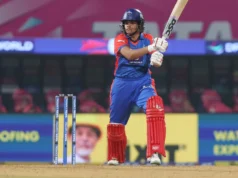The most intractable argument that divided soccer fans for years was this one: Which teams played the best soccer on which continents?
The top teams in Europe, South America, and North America hardly ever overlapped, with the exception of summer “friendly” competitions, unlike national teams that faced off in the quadrennial World Cup.
In an effort to provide a response, the FIFA Club World Cup, which starts this weekend across the United States and ends with the final on July 13, extended its previously smaller structure. 32 teams from six continents are currently competing for a $1 billion prize fund.
Jill Ellis, the chief football officer of FIFA, the world soccer governing body, and a former World Cup-winning coach of the U.S. women’s national team, stated, “This is for bragging rights.” It includes prize money. Above all, though, this is an opportunity to become the first-ever club world champion.
But once the competition gets underway, the cash isn’t the only aspect of it. It is unclear how much support the new tournament has from American viewers and players in light of declining ticket prices and claims made by Major League Soccer players that the league has consented to engage in a “cash grab” that unjustly rewards them.
An upper-deck ticket cost $379 when tickets for Saturday’s first game in Florida between Inter Miami, which featured Lionel Messi, and Egyptian team Al Ahly went on sale through Ticketmaster in December. Similar seats were available for as little as $116 last week. NPR reports that FIFA has partnered with a college in Florida to provide four free tickets to students who purchase a single $20 ticket. An estimated 60,927 people attended the first game, which was just under the stadium’s 65,000 capacity.
When tickets went on sale in December, Bayern Munich, the defending German champion, offered lower-bowl tickets for their opening Sunday match in Cincinnati for as little as $107; on Saturday, they were being resold on StubHub for half that amount.
Fans may watch a game between the Mexican team C.F. Monterrey and the Japanese team Urawa Red Diamonds on June 25 for as little as $8.
“We anticipate great attendances and electric atmospheres at its inaugural edition, with excitement growing with every round of matches and the tournament ultimately standing as the undisputed pinnacle of club world football,” stated FIFA in a release. Fans from more than 130 nations have already bought tickets, demonstrating the desire. As a clear indication of global reach and anticipation, the United States leads the top 10 markets, followed by Brazil, Argentina, Mexico, Canada, France, Japan, Switzerland, Germany, and Portugal.
The Club World Cup is a relatively young competition, hence it cannot boast much prestige or history. Rather, it has provided a record-breaking sum of prize money, with $525 million of the $1 billion guaranteed to be given to teams on a sliding scale only for qualifying for the 32-team field. New Zealand’s Auckland City FC will get $3.5 million, while top-tier European teams like Real Madrid, Manchester City, Bayern Munich, and Paris Saint-Germain would earn $12.8 million to $38 million.
Teams’ achievements will determine how the remaining $475 million of the billion-dollar pool is distributed; a club that advances to the round of 16 will receive $7.5 million, while quarterfinalists will receive $13.1 million, and prizes will increase until the final. Major League Soccer players have questioned why their share of the jackpot isn’t larger because the winner might end up earning up to $125 million, which is far more than just bragging rights.
During warm-ups prior to a June 1 game, Seattle Sounders players wore white T-shirts that stated “Club World Ca$h Grab,” with an image of the Mr. Monopoly character holding a pouch that read “FIFA” and wearing a “MLS” top hat. According to The Seattle Times, the owner of the squad reprimanded the players following the protest.
Prior to any performance-based bonuses, the three Major League Soccer teams competing in the Club World Cup field—Seattle, Inter Miami, and Los Angeles FC—are assured $9.55 million each for their participation. According to the league’s collective bargaining agreement, players’ earnings from competing in or winning a “compulsory tournament or noncompulsory tournament” are limited to $1 million.
In addition to pointing out that the players and MLS renegotiated the prize money distribution prior to a major tournament last year, ultimately reaching a 50/50 split, the players’ union has persisted in openly advocating for an increase in players’ stakes from the existing 90/10 division.
“Agreed to voluntarily provide additional performance-based compensation to players from the three participating clubs,” MLS stated in a statement on Thursday. According to the league, players would get 20% of all prize money collected starting in the group stage.
The statement stated that the players of an MLS team would get over $24 million in performance bonuses if the team won the Club World Cup. Given the Club World Cup’s expanded structure and larger prize money, MLS club owners think performance-based incentives are suitable. The League appreciates the players’ ongoing devotion and hard work and is excited to see them represent their teams and Major League Soccer internationally this summer.
The players association expressed its “deep disappointment” with the league’s plan in a post on X on June 8.
The post stated, “The proposal’s timing, content, and retaliatory nature send a clear message: MLS does not respect or value players’ efforts with regard to this tournament.” “The players and the MLSPA are extremely disappointed by this message, but they are not surprised.”
On Friday, midfielder Albert Rusnak of Seattle told reporters, “I don’t think sitting out is an option.” “Just because, once more, that’s inside of us as athletes and winners, and we want to go out there and win and prove people wrong, whether they do not believe we can do anything or they are talking about bonuses.”
An update on Club World Cup Bonuses.
— MLSPA (@MLSPA) June 8, 2025
MLS spent most of last week making threats and promising retaliation against the MLSPA and players because Seattle players wore t-shirts that expressed frustration over the league’s refusal to engage about Club World Cup compensation.
More… pic.twitter.com/jAz06ASGYw
According to FIFA employee Ellis, players will be fiercely competitive if they had the opportunity to compete on that international platform.
“I believe that if you were to ask anyone if they would like to participate in this event, they would answer yes. Do they want to get paid as much as possible? That depends on their league and the MLS, as the latter has a pay cap, in contrast to many other leagues worldwide, Ellis stated. “There are various structures and CBAs, and that’s part of that.”
However, based on my observations and experience working with some of the world’s top players, I believe that elite players prefer to compete against other elite players. They desire to compete, challenge themselves, and establish their worth. Listen, it’s ultimately up to the players, but I believe they will want to participate in this tournament.
“When we win in American sports, the Major League Baseball team is the world champion. The NFL squad is crowned world champions when they [win]. Yes, but they are competing against teams from the United States. This is a world championship, indeed. These are the world’s greatest clubs.







